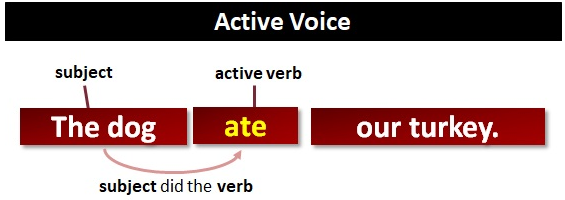Unit-1
Communicative Grammar
Q-1. What do you understand by the term grammar?
A-1 Grammar is the set of rules that govern the usage of English language. A strong grasp of English grammar is therefore of the greatest importance.
Most non-native English speakers make grammatical mistakes while speaking in English. Improving grammar takes time and effort but it is well worth it.
Q-2 How many types of tenses are there?
A-2 The concept of time can be split into:
The Present - The Past - The Future
The tense of a verb shows the time of an event or action.
There are four types of tenses. Simple, Perfect, Continuous and Present Perfect Continuous and each of these has a present, past and future form
Q-3 Errors in Tenses Exercises
A-3 1.The glass windowpane _ while the kids were playing cricket.
a. Broke
b. Was broken
c. Had broke
d. Was broke
2. I will _ you in the evening.
a. Call
b. Calling
c. Be calling
d. Called
3. The last date to submit the project _ end of the day today.
a. Is
b. Was
c. Will
d. Has been
4. Priya _ music class every Thursday.
a. Attends
b. Attended
c. Is attending
d. Will attending
5. Raju _ when his mother entered the room.
a. Played
b. Was playing
c. Plays
d. Is playing
6. John always _ to help the needy,
a. Tried
b. Tries
c. Was trying
d. Is trying
7. It had stopped raining when I _ the office.
a. Leave
b. Was leaving
c. Left
d. Leaves
8. Had you reached the station on time, you _ board the train.
a. Would
b. Will
c. Would have
d. Will have
9. Raj is learning how _ guitar
a. To play
b. To playing
c. Playing
d. Play
10. Rahul _ suffering from migraine since last week.
a. Is
b. Was
c. Has been
d. Has
Answers:
1. a 2. a. 3. a. 4. a. 5. b. 6. b. 7. c. 8. c. 9. a. 10. c
Q-4 Make the first, second or third conditional
A-4
1. If we meet at 9:30, we will have plenty of time.
2. Lisa would find the milk if she looked in the fridge.
3.The zookeeper would have punished her with a fine if she had fed the animals.
4.If you spoke louder, your classmates would understand you.
5.Dan would arrive safe if he drove slowly.
6.You would have had no trouble at school if you had done your homework.
7.If you swim in this lake, you'll shiver from cold.
8.The door will unlock if you press the green button.
9.If Mel had asked her teacher, he'd have answered her questions.
10 I would call the office if I was/were you.
Q-5 What is a Concord in English language?
A-5 In grammar, concord refers to the way that a word has a form appropriate to the number or gender of the noun or pronoun it relates to. For example, in 'She hates it', there is concord between the singular form of the verb and the singular pronoun 'she'.
Q-6 What is the grammatical concord ?
A-6 Grammatical concord– the principle of grammatical concord holds with nouns that are grammatically marked for plural. It is the easiest type of concord. Simply put, the rule says, if the subject is singular, the verb will also be singular and if the subject is plural, the verb will also be plural. E.g. The boy is here, The boys are here, The man likes food, The men like food.
Q-7 Define notional Concord.
A-7 Notional Concord. The principle of notional concord holds with collective nouns. Collective nouns are words like “committee”, “club”, “choir”, “audience”, “congregation” etc. These words mean a group of people, and they can take either singular or plural verbs depending on how they are used. The rule is that, if the collective noun performs an action, it takes a plural verb, but if no action is involved, it takes a singular verb.
E.g. The choir sing very well (not sings, since an action is involved, the verb will be plural),The Choir is very disciplined (not are), The audience is quite large (not are), The audience were clapping their hands (not is)
Q-8 What does proximity Concord means?
A-8 Proximity concord-- Proximity means “nearness”. The principle of proximity concord says that if two or more subjects are coordinated (joined) by the correlative coordinators “either……. or” or “neither…..nor”, the subject that is closest to the verb determines the concord- the rest (first one (s)) are ignored. E.g If Sandra fails her exams, either her parents, her friends or her sister is to blame.
Q-9 Rewrite the sentences in passive voice.
A-9
Q-10 Complete the sentences in reported speech. Note whether the sentence is a request, a statement or a question.
A-10
→ He said that he liked that song.
→ She asked me where my sister was.
→ She said that she didn't speak Italian.
→ They asked me to say hello to Jim.
→ He said that the film had begun at seven o'clock.
→ She told the boys not to play on the grass.
→ She asked him where he had spent his money.
→ He said that he never made mistakes.
→ He wanted to know if she knew Robert.
→ The stuntman advised the audience not to try that at home.
Q-11 Define grammar in your own words.
A-11 Grammar is the set of rules that govern the usage of English language. A strong grasp of English grammar is therefore of the greatest importance.
Q-12 What is an Active Voice?
A-12 The active voice describes a sentence where the subject performs the action stated by the verb. In fact, sentences constructed in the active voice add impact to your writing.

Fig.1 Active Voice
Q-13 Explain in brief voice in English Grammar?
A-13 In grammar, the voice of a verb describes the relationship between the action that the verb expresses and the participants identified by its arguments.
Q-14 What Is the Passive Voice?
A-14 If the subject is having the action done to it, then the verb is said to be in the passive voice.

Fig.2 Passive Voice.
Q-15 What is reported speech I’m English grammar?
A-15 In the English language, there are two ways of conveying what someone else has said: direct/quoted speech and indirect/ reported speech.
Q-16 What is direct speech?
A-16 Direct/quoted speech, involves quoting the exact words uttered by the person, within inverted commas or quotation marks. For example: She said, “I won’t be coming home tonight ” is an example of direct speech. Note that in this type of speech, a comma is most often used before starting the exact quote within the inverter commas.
Q-17 What does indirect speech mean?
A-17 Indirect/reported speech, on the other hand, does not have to be within quotes or reported word-to-word. In fact, unless one is relaying the exact words spoken, one should never use quotation marks. For example: She told us that she wouldn’t be coming home that night is an example of reported speech. Note that the verb tense necessarily changes in reported speech. This is because when we report speech, we are talking, obviously, about something that was said in the past. Hence, it becomes necessary to use the past tense of the verb.
Q-18 What is reporting verb?
A-18 The verb which introduces the reporting speech, that comes before the inverted commas is called reporting verb. E.g. I said to him, “ What are you doing?” the verb said is reporting verb.
Q-19 What is reported speech?
A-19 The actual words of the speaker, given with “ inverted commas are called the reporting time speech. The first letter of reported speech must be capital.
Q-20 Choose the correct form of the verb that agrees with the subject.
1. Annie and her brothers (is, are) at school.
2. Either my mother or my father (is, are) coming to the meeting.
3. The dog or the cats (is, are) outside.
4. Either my shoes or your coat (is, are) always on the floor.
5. George and Tamara (doesn't, don't) want to see that movie.
6. Benito (doesn't, don't) know the answer.
7. One of my sisters (is, are) going on a trip to France.
8. The man with all the birds (live, lives) on my street.
9. The movie, including all the previews, (take, takes) about two hours to watch.
10. The players, as well as the captain, (want, wants) to win.
11. Either answer (is, are) acceptable.
12. Every one of those books (is, are) fiction.
13. Nobody (know, knows) the trouble I've seen.
14. (Is, Are) the news on at five or six?
15. Mathematics (is, are) John's favorite subject, while Civics (is, are) Andrea's favorite subject.
16. Eight dollars (is, are) the price of a movie these days.
17. (Is, Are) the tweezers in this drawer?
18. Your pants (is, are) at the cleaner's.
19. There (was, were) fifteen candies in that bag. Now there (is, are) only one left!
20. The committee (debates, debate) these questions carefully.
21. The committee members (leads, lead) very different lives in private.
22. The Prime Minister, together with his wife, (greets, greet) the press cordially.
23. All of the CDs, even the scratched one, (is, are) in this case.
A-20 Subject and Verb Agreement
1. Annie and her brothers are at school.
2. Either my mother or my father is coming to the meeting.
3. The dog or the cats are outside.
4. Either my shoes or your coat is always on the floor.
5. George and Tamara don't want to see that movie.
6. Benito doesn't know the answer.
7. One of my sisters is going on a trip to France.
8. The man with all the birds lives on my street.
9. The movie, including all the previews, takes about two hours to watch.
10. The players, as well as the captain, want to win.
11. Either answer is acceptable.
12. Every one of those books is fiction.
13. Nobody knows the trouble I've seen.
14. Is the news on at five or six?
15. Mathematics is John's favorite subject, while Civics is Andrea's favorite subject.
16. Eight dollars is the price of a movie these days.
17. Are the tweezers in this drawer?
18. Your pants are at the cleaner's.
19. There were fifteen candies in that bag. Now there is only one left!
20. The committee debates these questions carefully.
21. The committee members lead very different lives in private.
22. The Prime Minister, together with his wife, greets the press cordially.
23. All of the CDs, even the scratched one, are in this case.